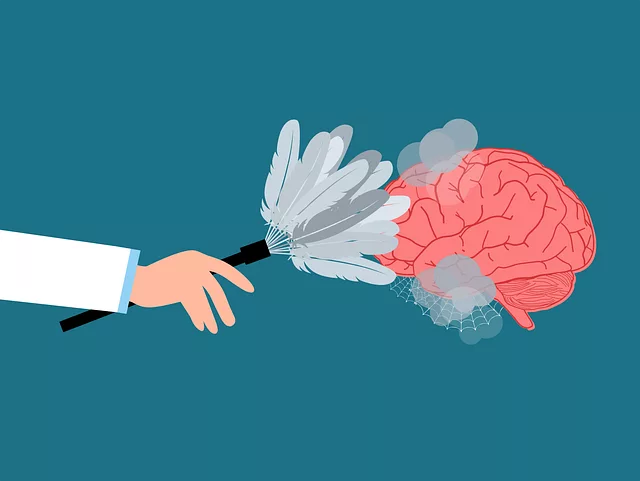Crisis Intervention Teams (CITs) are vital for addressing acute mental health crises, especially in areas like Westminster with Kaiser Permanente's comprehensive mental health coverage. These teams provide immediate support and foster Emotional Intelligence, catering to complex needs. Advocacy efforts highlight CITs' role in equitable access to quality mental health services, demonstrated by successful programs nationwide. Kaiser Permanente in Westminster offers tailored programs combining treatment and prevention, including cultural competency training, to reduce stigma and make mental health support more accessible. Comprehensive crisis intervention team training further enhances local resilience, improving response times and long-term community well-being.
Crisis intervention teams (CITS) are a vital resource in mental health care, providing immediate support during acute crises. This article explores the critical role of these teams and delves into three key aspects: understanding CITS, examining Kaiser Permanente’s mental health coverage enhancements, and analyzing Westminster’s training programs for community resilience. By focusing on these components, we aim to highlight how effective CIT training can revolutionize mental healthcare accessibility and outcomes.
- Understanding Crisis Intervention Teams: A Vital Resource in Mental Health Care
- Kaiser Permanente Mental Health Coverage: Enhancing Support Systems
- Westminster's Role: Training Programs and Their Impact on Community Resilience
Understanding Crisis Intervention Teams: A Vital Resource in Mental Health Care

Crisis Intervention Teams (CITs) are a vital resource within mental health care systems, especially in areas like Kaiser Permanente mental health coverage Westminster where access to specialized services is crucial. These teams, typically comprising professionals with diverse backgrounds such as psychologists, social workers, and psychiatric nurses, are designed to provide immediate and effective support during acute crises. By integrating CITs into existing healthcare infrastructure, communities can enhance their response to individuals experiencing severe emotional distress, including those struggling with anxiety relief.
The effectiveness of CITs lies not only in their rapid deployment but also in their focus on building strong relationships and fostering Emotional Intelligence. This approach is particularly beneficial in addressing the complex needs of individuals and families impacted by mental health challenges. Moreover, advocacy efforts around Mental Health Policy Analysis and Advocacy have highlighted the role of CITs as a game-changer in ensuring equitable access to quality mental healthcare services, as evidenced by successful programs across various regions.
Kaiser Permanente Mental Health Coverage: Enhancing Support Systems

Kaiser Permanente’s Mental Health Coverage plays a pivotal role in enhancing support systems for individuals seeking assistance with their mental well-being. With locations like Westminster, the organization offers comprehensive programs tailored to address various mental health concerns. These initiatives not only focus on treatment but also emphasize prevention strategies, such as Burnout Prevention techniques, which are crucial in fostering resilience among healthcare providers.
The program incorporates Healthcare Provider Cultural Competency Training, ensuring a sensitive and effective response to diverse patient populations. By reducing the Mental Illness Stigma, Kaiser Permanente aims to create an inclusive environment where individuals feel comfortable seeking help. This holistic approach is transforming lives and communities, making mental health support more accessible and less intimidating.
Westminster's Role: Training Programs and Their Impact on Community Resilience

Westminster plays a pivotal role in enhancing community resilience through comprehensive crisis intervention team training programs. These initiatives are designed to equip mental health professionals with advanced skills, focusing on key areas such as depression prevention and cultural sensitivity in mental healthcare practice. By fostering a deeper understanding of risk assessment for mental health professionals, Westminster ensures that teams are well-prepared to handle diverse crises effectively.
Through these training programs, communities benefit from enhanced preparedness, allowing them to respond swiftly and efficiently during mental health emergencies. Kaiser Permanente’s mental health coverage is further supported by Westminster’s efforts, contributing to a more robust safety net for individuals in need. This holistic approach not only addresses immediate crisis situations but also fosters long-term resilience within communities.
Crisis intervention team training programs, such as those offered by organizations like Westminster, play a pivotal role in enhancing community resilience. By equipping individuals with the skills to support those in mental health crises, these initiatives ensure that everyone has access to timely and effective assistance. In light of Kaiser Permanente’s commitment to mental health coverage, integrating comprehensive crisis intervention training further strengthens support systems, fostering a healthier and more supportive society.






